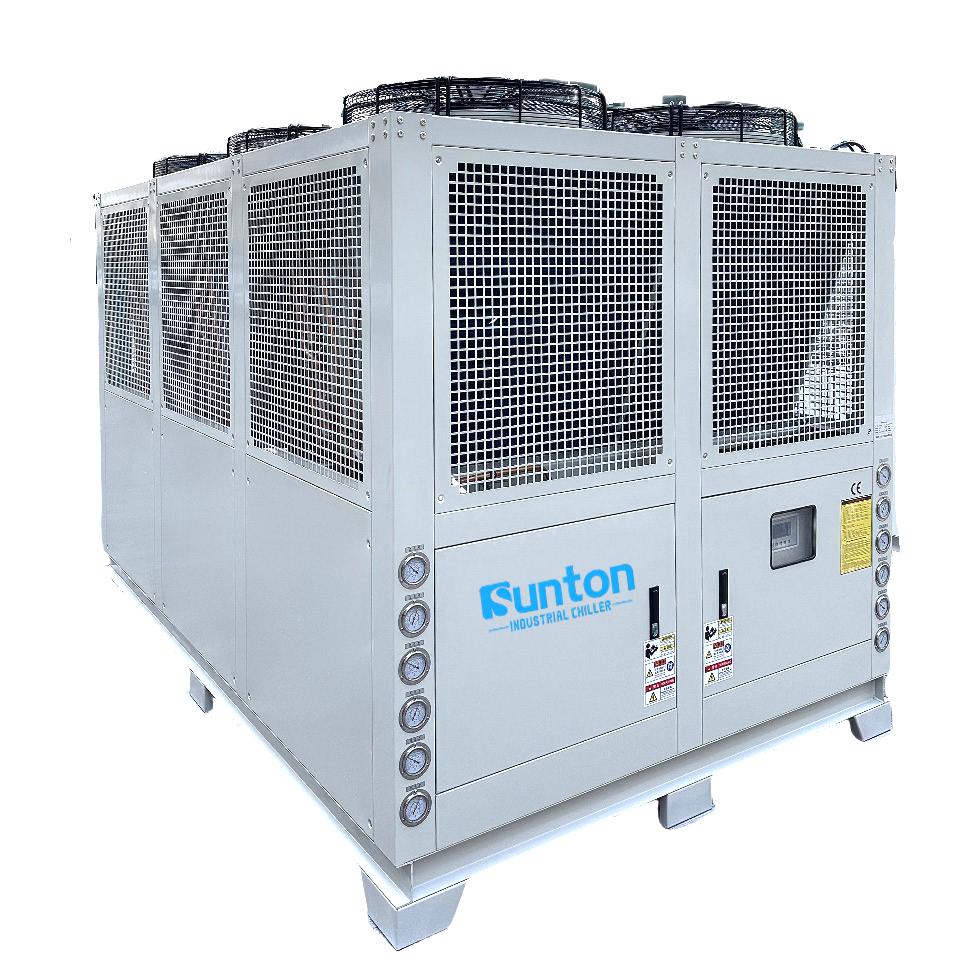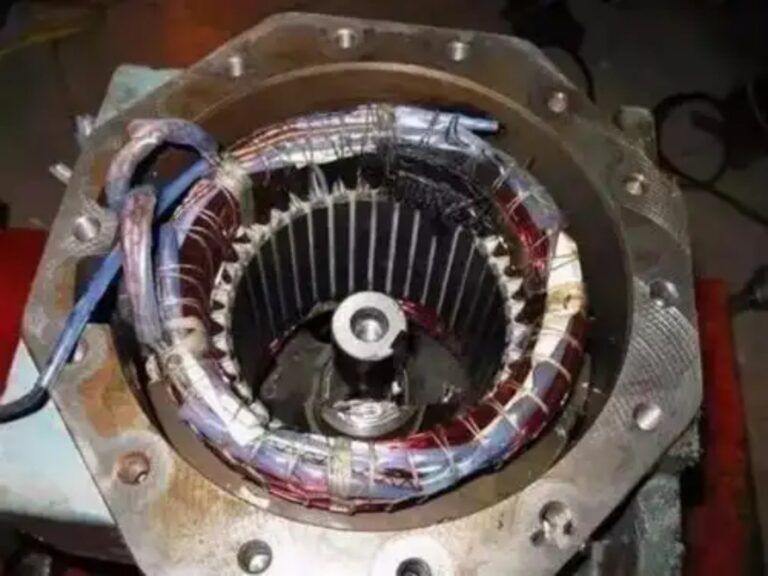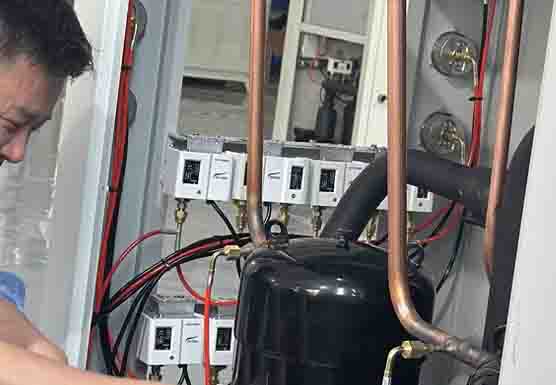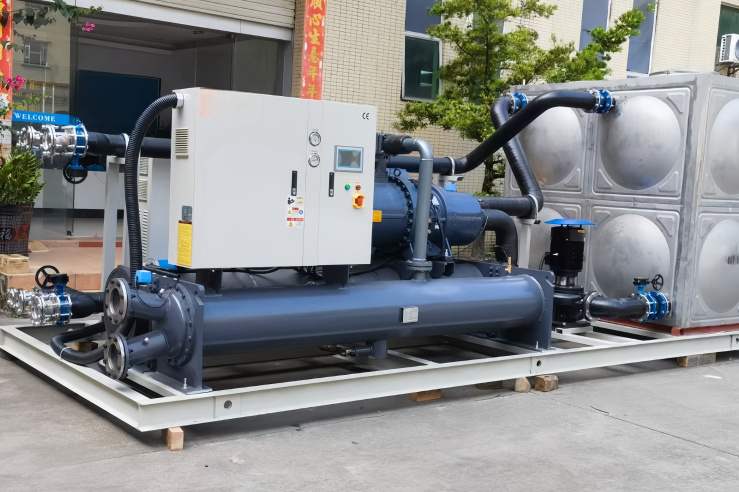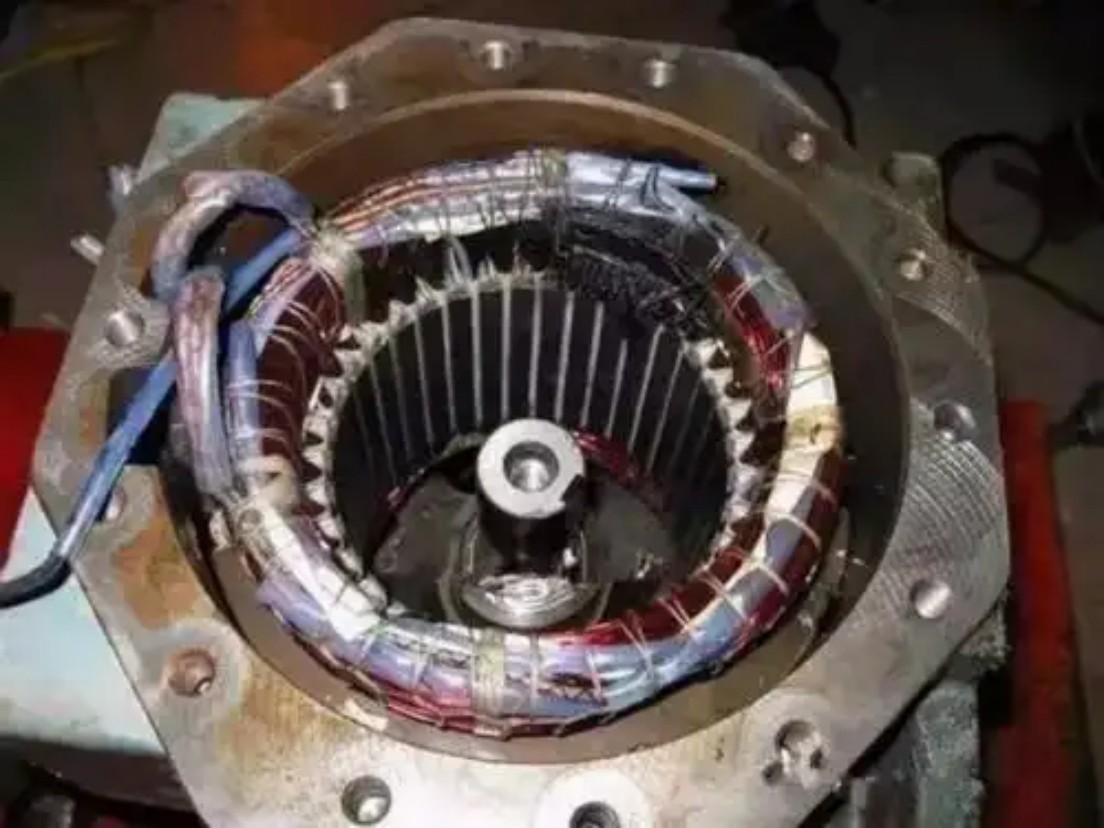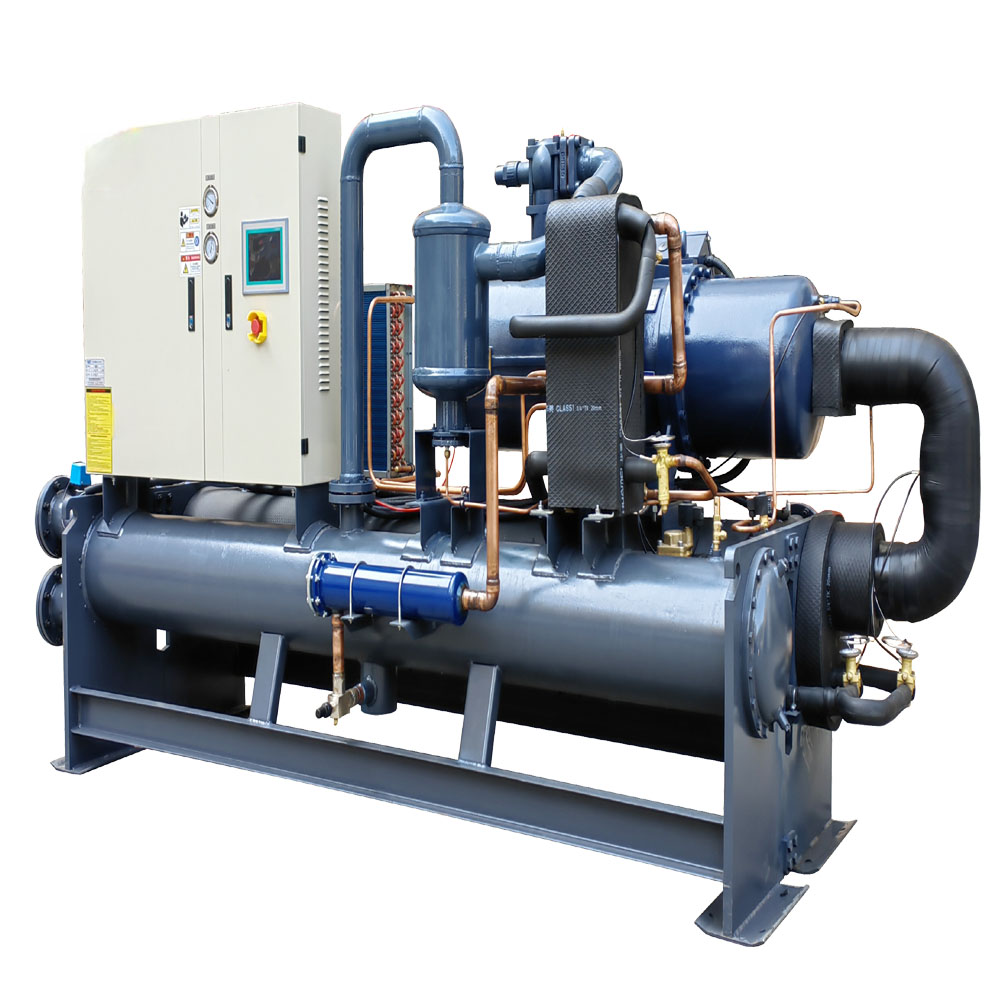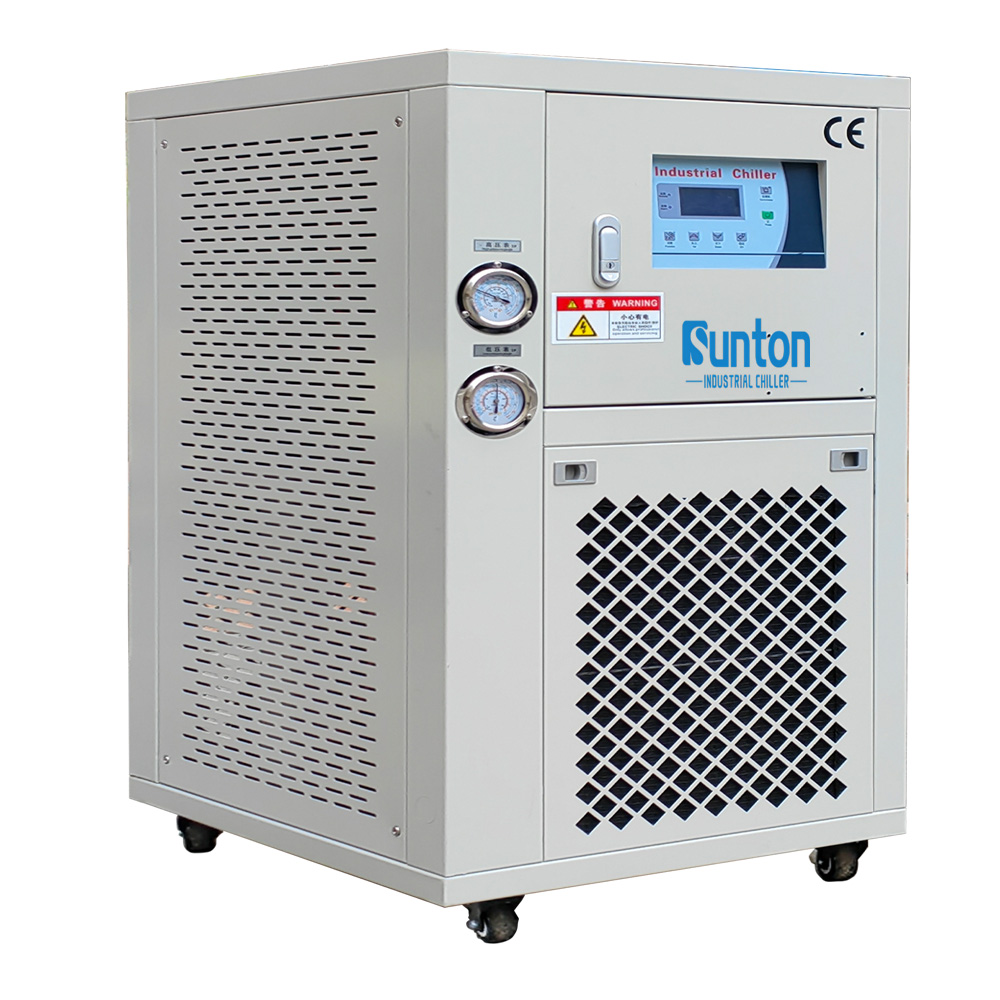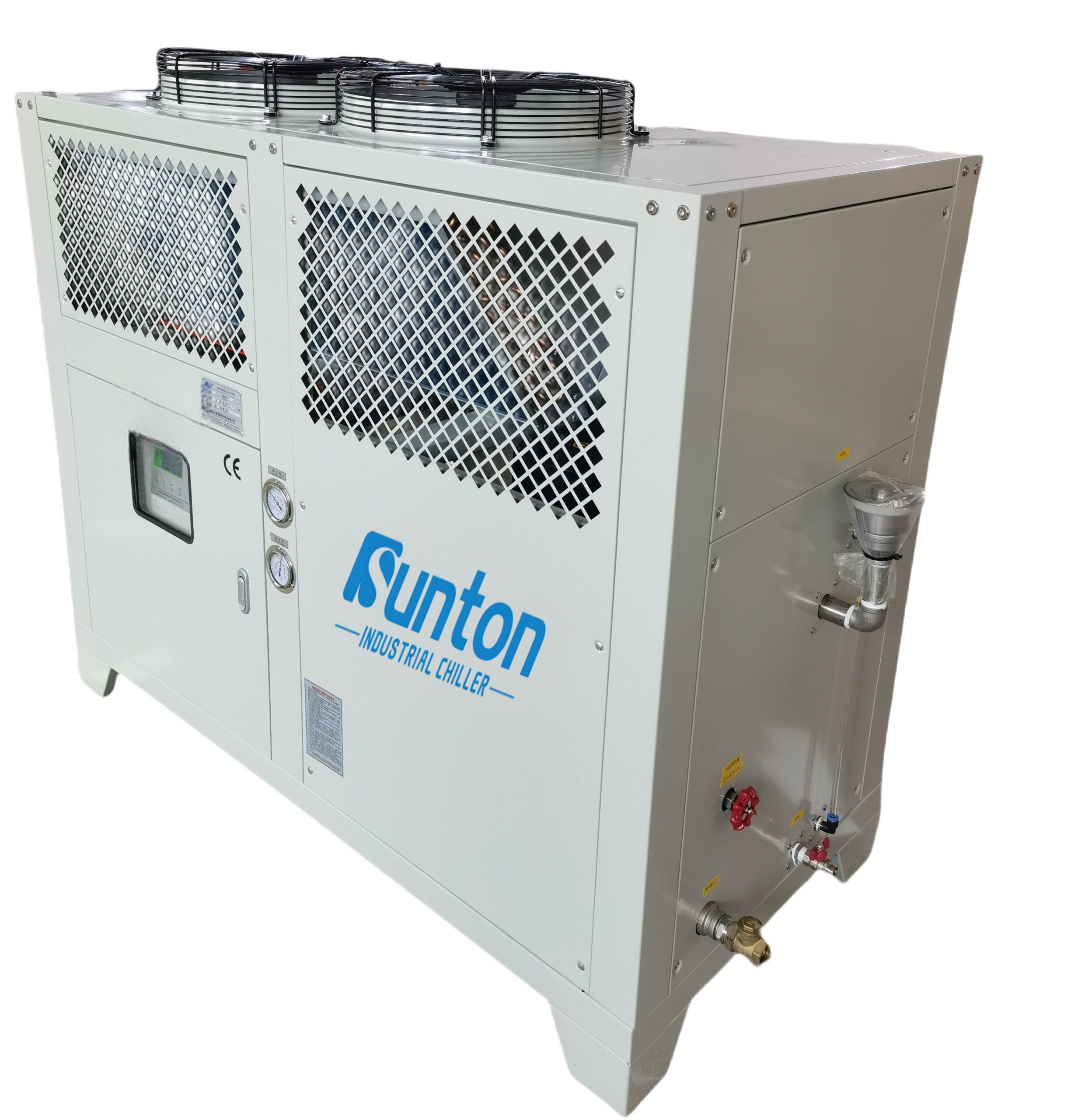-
Khu công nghiệp Dalingshan Quảng Đông
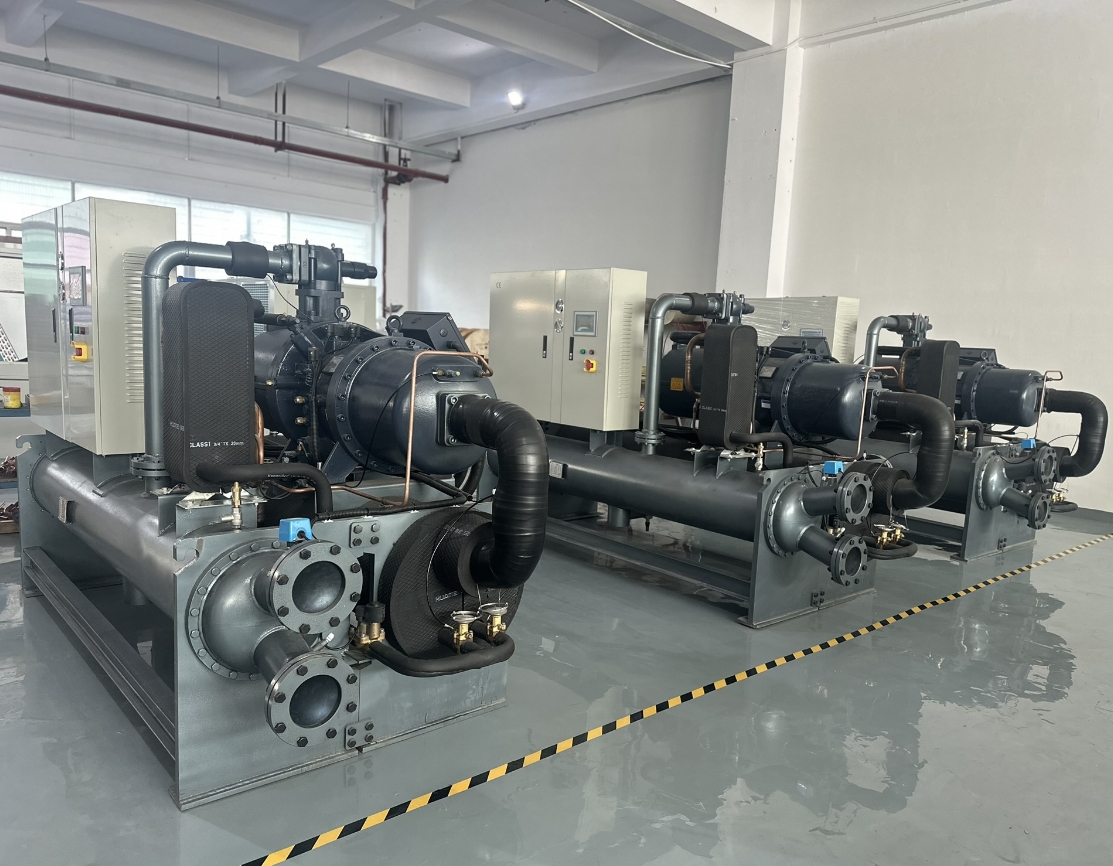
hướng dẫn sử dụng chất lỏng propylene glycol cho hệ thống làm lạnh
Tại sao nên sử dụng Propylene Glycol trong hệ thống làm lạnh của bạn? Làm mát quy trình pha chế của bạn bằng máy làm lạnh Glycol
Bài viết này đi sâu vào thế giới công nghiệp máy làm lạnh và vai trò quan trọng propylene glycol đóng vai trò nâng cao hiệu quả và độ tin cậy của chúng, đặc biệt là trong các môi trường nhạy cảm như ngành thực phẩm và đồ uống. Từ việc hiểu những điều cơ bản của máy làm lạnh glycol hoạt động để khám phá những lợi ích cụ thể của sử dụng glycol trong bạn hệ thống làm lạnh, chúng tôi sẽ đề cập đến tất cả. Cho dù bạn là một người nấu bia dày dạn kinh nghiệm hay chỉ tò mò về khoa học làm mát, bài viết này cung cấp những hiểu biết có giá trị khiến bạn xứng đáng dành thời gian. Bạn sẽ khám phá ra lý do tại sao propylene glycol là sự ưa thích dịch để duy trì tối ưu nhiệt độ trong nhiều loại công nghiệp ứng dụng và cách nó có thể góp phần vào sự an toàn và chất lượng của sản phẩm của bạn.
Mục lục
Propylene Glycol là gì và tại sao nó được sử dụng trong máy làm lạnh?
Propylen glycol là một chất lỏng tổng hợp chất hấp thụ nước và là đã sử dụng cho nhiều ứng dụng khác nhau, bao gồm chất làm mát Và chất chống đông trong công nghiệp máy làm lạnh. Sự phổ biến của nó bắt nguồn từ không độc hại thiên nhiên, làm cho nó trở thành một lựa chọn an toàn cho các ngành công nghiệp nơi sự ô nhiễm là một mối quan tâm, chẳng hạn như đồ ăn và đồ uống ngành công nghiệp. Chức năng chính của propylene glycol trong một hệ thống làm lạnh là để hạ thấp điểm đóng băng của dịch, cho phép máy làm lạnh để hoạt động tại nhiệt độ thấp không có nguy cơ đóng băng.
Là một ngành công nghiệp máy làm lạnh nước nhà máy sản xuất, chúng tôi hiểu tầm quan trọng của việc duy trì chính xác nhiệt độ trong nhiều ứng dụng khác nhau, bao gồm Ngành công nghiệp nhựa và cao su, Ngành công nghiệp gia công, Và Ngành công nghiệp hóa chất và dược phẩm. Propylen glycol thường xuyên trộn với nước để tạo ra một chất lỏng truyền nhiệt có thể chịu được cực kỳ nhiệt độ thấp không có đóng băng, điều này rất quan trọng đối với các ngành công nghiệp này. Ví dụ, trong ngành thực phẩm và đồ uống, máy làm lạnh glycol được sử dụng để mát mẻ sản phẩm một cách nhanh chóng và hiệu quả. Bằng cách kết hợp propylene glycol vào của chúng tôi hệ thống làm lạnh, chúng tôi đảm bảo rằng khách hàng của chúng tôi có thể duy trì mong muốn nhiệt độ cho các quy trình cụ thể của họ, tăng cường cả hiệu quả và sự an toàn trong hoạt động của họ.
Hệ thống làm lạnh hoạt động như thế nào với Propylene Glycol?
MỘT hệ thống làm lạnh sử dụng propylene glycol hoạt động theo nguyên lý trao đổi nhiệt. glycol dung dịch được bơm qua máy làm lạnh, nơi nó hấp thụ nhiệt từ quá trình hoặc thiết bị đang được làm mát. Cái này nóng glycol giải pháp sau đó đi đến một bộ trao đổi nhiệt hoặc một chất làm lạnh hệ thống, nơi nhiệt được tản ra. làm mát glycol sau đó được bơm trở lại hệ thống để tiếp tục làm mát chu kỳ. Các sử dụng propylene glycol tăng cường quá trình này bằng cách ngăn chặn dịch từ đóng băng Tại nhiệt độ thấp, điều này rất cần thiết để duy trì sự nhất quán làm mát hiệu suất.
Hiệu quả của một máy làm lạnh glycol phụ thuộc vào một số yếu tố, bao gồm tỷ lệ glycol-nước, loại chất ức chế được sử dụng và thiết kế tổng thể của hệ thống làm lạnh. Ví dụ, nồng độ cao hơn propylene glycol sẽ dẫn đến kết quả thấp hơn điểm đóng băng, nhưng nó cũng có thể làm tăng độ nhớt của dịch, ảnh hưởng bơm hiệu suất và hiệu suất truyền nhiệt. Chuyên môn của chúng tôi trong thiết kế và sản xuất máy làm lạnh công nghiệp cho phép chúng tôi tối ưu hóa các yếu tố này để đáp ứng nhu cầu cụ thể của khách hàng. Cho dù đó là cho một Trung tâm dữ liệu đòi hỏi sự nhất quán làm mát hoặc một Phòng thí nghiệm cần chính xác nhiệt độ kiểm soát, của chúng tôi hệ thống làm lạnh được thiết kế để cung cấp hiệu suất đáng tin cậy. Bạn có thể tìm hiểu thêm về sản phẩm của chúng tôi và ứng dụng của chúng, ví dụ trên Máy làm lạnh Glycol trang.
Sự khác biệt giữa Propylene Glycol và Ethylene Glycol là gì?
Cả hai propylene glycol Và etilen glycol được sử dụng như chất chống đông Và chất làm mát trong nhiều ứng dụng khác nhau, nhưng chúng có sự khác biệt rõ rệt. Sự khác biệt đáng kể nhất là độc tính của chúng. Etylen glycol là rất cao độc hại nếu nuốt phải, khiến nó không phù hợp cho các ứng dụng có nguy cơ tiếp xúc với con người hoặc động vật. Ngược lại, propylene glycol được coi là không độc hại và thường được công nhận là an toàn cho sử dụng trong thực phẩm và đồ uống xử lý. Điều này làm cho propylene glycol sự lựa chọn ưu tiên cho các ngành công nghiệp đòi hỏi tính an toàn và không độc hại cao.
Về mặt hiệu suất, cả hai chất lỏng cung cấp tuyệt vời bảo vệ chống đóng băng Và truyền nhiệt khả năng. Tuy nhiên, etilen glycol có cao hơn một chút truyền nhiệt hiệu quả so với propylene glycol ở cùng nồng độ. Mặc dù vậy, không độc hại bản chất của propylene glycol thường vượt trội hơn sự khác biệt nhỏ trong truyền nhiệt hiệu quả, đặc biệt là trong ngành thực phẩm và đồ uống. Của chúng tôi máy làm lạnh công nghiệp được thiết kế để làm việc với propylene glycol, đảm bảo rằng khách hàng của chúng tôi trong Ngành thực phẩm và đồ uống, Ngành Y tế, Và Phòng thí nghiệm và Viện nghiên cứu có thể được hưởng lợi từ một cách an toàn và hiệu quả làm mát giải pháp.
Tôi nên sử dụng bao nhiêu Glycol trong hệ thống làm lạnh của mình?
Xác định quyền lượng glycol cho bạn hệ thống làm lạnh phụ thuộc vào một số yếu tố, bao gồm cả hoạt động mong muốn nhiệt độ, các điểm đóng băng bạn cần đạt được và ứng dụng cụ thể. Nói chung, tỷ lệ glycol-nước được điều chỉnh để đạt được mong muốn bảo vệ chống đóng băng. Đối với hầu hết công nghiệp ứng dụng, một trộn của 30-50% propylene glycol với nước là đủ để ngăn ngừa đóng băng ở chế độ hoạt động điển hình nhiệt độ.
Điều quan trọng là phải tuân theo các khuyến nghị của nhà sản xuất khi xác định nồng độ glycol. Tập trung quá mức glycol có thể dẫn đến tăng độ nhớt, giảm truyền nhiệt hiệu quảvà chi phí hoạt động cao hơn. Đội ngũ của chúng tôi tại khu công nghiệp máy làm lạnh nước nhà máy sản xuất có thể giúp bạn xác định tối ưu tỷ lệ glycol-nước cho nhu cầu cụ thể của bạn. Chúng tôi xem xét các yếu tố như loại thiết bị, môi trường hoạt động và yêu cầu nhiệt độ phạm vi để đề xuất tốt nhất giải pháp duy trì hiệu suất tối ưu.
| Nồng độ Glycol | Điểm đóng băng (°F) | Ứng dụng |
| 30% | 5 | Sử dụng công nghiệp nói chung |
| 40% | -8 | Chế biến thực phẩm và đồ uống |
| 50% | -34 | Lưu trữ nhiệt độ thấp, nhà máy bia |
Lợi ích của việc sử dụng Glycol trong ứng dụng công nghiệp là gì?
Sử dụng glycol, cụ thể propylene glycol, TRONG công nghiệp ứng dụng cung cấp một số lợi ích đáng kể. Một trong những lợi thế chính là khả năng ngăn ngừa đóng băng TRONG hệ thống làm mát, cho phép họ hoạt động hiệu quả tại nhiệt độ thấp. Điều này đặc biệt quan trọng trong các ngành công nghiệp như Ngành thực phẩm và đồ uống, nơi duy trì cụ thể nhiệt độ rất quan trọng đối với chất lượng và sự an toàn của sản phẩm. Ngoài ra, propylene glycol là không độc hại, làm cho nó trở thành một lựa chọn an toàn cho các ứng dụng có nguy cơ sự ô nhiễm.
Một lợi ích khác của sử dụng glycol là tuyệt vời của nó truyền nhiệt tính chất. Khi trộn với nước, propylene glycol tạo ra một chất lỏng truyền nhiệt có thể hấp thụ và tản nhiệt hiệu quả, cải thiện hiệu suất tổng thể của hệ thống làm lạnh. Điều này rất cần thiết để duy trì tính nhất quán nhiệt độ trong các ứng dụng như Hệ thống HVAC, Trung tâm dữ liệu, Và công nghiệp quy trình của chúng tôi. máy làm lạnh công nghiệp được thiết kế để tận dụng những lợi ích này, cung cấp cho khách hàng của chúng tôi sự đáng tin cậy và hiệu quả làm mát giải pháp phù hợp với nhu cầu cụ thể của họ. Bạn có thể tìm hiểu thêm về sản phẩm của chúng tôi và ứng dụng của chúng, ví dụ trên Máy làm lạnh công nghiệp cho nhà máy trộn bê tông trang.
Tại sao Glycol lại cần thiết trong hệ thống làm lạnh nhà máy bia?
Trong ngành sản xuất bia, việc duy trì độ chính xác nhiệt độ rất quan trọng cho quá trình lên men và xử lý. Máy làm lạnh Glycol thường được sử dụng trong nhà máy bia ĐẾN mát mẻ máy lên men, bể chứa sáng và các thiết bị khác. Việc sử dụng propylene glycol TRONG hệ thống làm lạnh nhà máy bia cung cấp một số lợi thế. Đầu tiên, nó cung cấp tuyệt vời bảo vệ chống đóng băng, ngăn chặn làm mát dịch từ đóng băng và gây hư hỏng cho thiết bị. Điều này đặc biệt quan trọng trong giai đoạn sụp đổ lạnh, khi nhiệt độ được hạ xuống nhanh chóng.
Thứ hai, propylene glycol là không độc hại, điều này là cần thiết trong ngành thực phẩm và đồ uống. Trong một nhà máy bia, luôn có nguy cơ rò rỉ hoặc tràn, và sử dụng chất làm mát không độc hại đảm bảo rằng bia không bị nhiễm bẩn. Ngoài ra, máy làm lạnh glycol cung cấp nhất quán và đáng tin cậy làm mát, điều này rất quan trọng để duy trì chất lượng và tính nhất quán của bia. máy làm lạnh công nghiệp được thiết kế để đáp ứng nhu cầu cụ thể của nhà máy bia, cung cấp chính xác nhiệt độ kiểm soát và hiệu suất đáng tin cậy.
Propylene Glycol hoạt động như chất chống đông trong máy làm lạnh như thế nào?
Propylen glycol hoạt động như một chất chống đông TRONG máy làm lạnh bằng cách hạ thấp điểm đóng băng của chất lỏng làm mát. Khi propylene glycol là trộn với nước, nó phá vỡ sự hình thành các tinh thể băng, cho phép dịch để duy trì trạng thái lỏng ở nhiệt độ dưới mức bình thường điểm đóng băng của nước (32°F). Tính chất này rất quan trọng đối với hệ thống làm lạnh hoạt động trong môi trường lạnh hoặc những môi trường yêu cầu nhiệt độ thấp cho các quy trình cụ thể.
Hiệu quả của propylene glycol như một chất chống đông phụ thuộc vào nồng độ của nó trong dịch. Nồng độ cao hơn glycol sẽ dẫn đến kết quả thấp hơn điểm đóng băng, cung cấp lớn hơn bảo vệ chống đóng băngTuy nhiên, điều quan trọng là phải cân bằng nồng độ glycol để tránh tăng độ nhớt của dịch, có thể ảnh hưởng đến hiệu suất truyền nhiệt Và bơm hiệu suất. Của chúng tôi máy làm lạnh công nghiệp được thiết kế để tối ưu hóa tỷ lệ glycol-nước, đảm bảo hiệu quả bảo vệ chống đóng băng mà không ảnh hưởng đến hiệu suất.
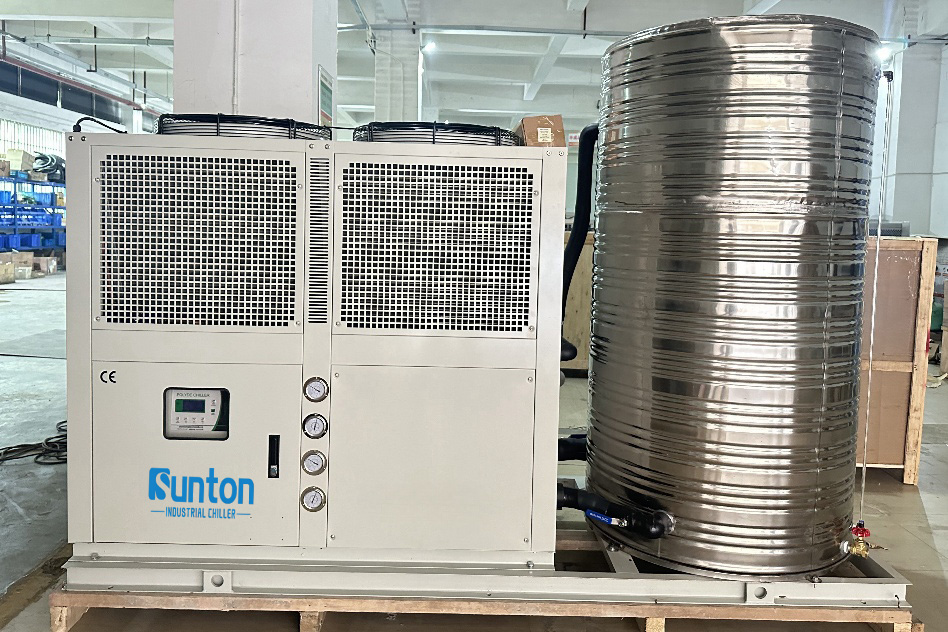
Vai trò của chất ức chế trong dung dịch Glycol là gì?
Chất ức chế là những thành phần thiết yếu của glycol các giải pháp được sử dụng trong hệ thống làm lạnh. Vai trò chính của chúng là ngăn ngừa sự ăn mòn và hình thành cặn trong hệ thống. Theo thời gian, các thành phần kim loại trong ống và thiết bị có thể bị ăn mòn, dẫn đến giảm hiệu quả và nguy cơ hỏng hệ thống. Chất ức chế hoạt động bằng cách tạo ra một lớp bảo vệ trên bề mặt kim loại, ngăn chặn tiếp xúc trực tiếp với glycol giải pháp và giảm nguy cơ ăn mòn.
Có nhiều loại khác nhau chất ức chế có sẵn, bao gồm cả những loại được pha chế cho các kim loại hoặc ứng dụng cụ thể. Ví dụ, một số chất ức chế được thiết kế để sử dụng trong các hệ thống có thành phần nhôm, trong khi những hệ thống khác phù hợp với hệ thống có đồng hoặc thép. Lựa chọn đúng chất ức chế rất quan trọng để duy trì hiệu suất và độ tin cậy lâu dài của bạn hệ thống làm lạnh. Đội ngũ của chúng tôi có thể giúp bạn lựa chọn phù hợp chất ức chế dựa trên vật liệu và điều kiện vận hành của hệ thống. Bạn có thể tìm hiểu thêm về sản phẩm của chúng tôi và ứng dụng của chúng, ví dụ trên Máy làm lạnh công nghiệp cho thủy canh trang.
Tôi nên cân nhắc những gì khi chọn chất lỏng truyền nhiệt?
Lựa chọn đúng đắn chất lỏng truyền nhiệt cho bạn hệ thống làm lạnh bao gồm việc xem xét một số yếu tố. Yếu tố quan trọng nhất là hoạt động nhiệt độ phạm vi ứng dụng của bạn. Nếu hệ thống của bạn hoạt động ở nhiệt độ thấp, bạn sẽ cần một dịch với một mức thấp điểm đóng băng, chẳng hạn như propylene glycol. Ngoài ra, bạn nên xem xét độc tính của dịch, đặc biệt nếu nó được sử dụng trong ngành thực phẩm và đồ uống hoặc các môi trường nhạy cảm khác.
Một yếu tố quan trọng khác là hiệu suất truyền nhiệt của dịch. Propylen glycol, khi trộn với nước, cung cấp tuyệt vời truyền nhiệt tính chất, làm cho nó phù hợp với nhiều ứng dụng khác nhau. Bạn cũng nên cân nhắc đến khả năng tương thích của dịch với vật liệu của hệ thống của bạn để ngăn ngừa ăn mòn và đảm bảo hiệu suất lâu dài. máy làm lạnh công nghiệp được thiết kế để hoạt động với nhiều chất lỏng truyền nhiệtvà nhóm của chúng tôi có thể giúp bạn chọn lựa giải pháp tốt nhất cho nhu cầu cụ thể của bạn.
Làm thế nào để bảo trì và theo dõi hệ thống làm lạnh Glycol của bạn?
Duy trì và giám sát của bạn hệ thống làm lạnh glycol là điều cần thiết để đảm bảo hiệu suất và độ tin cậy lâu dài của nó. Thường xuyên giám sát của nồng độ glycol là rất quan trọng để đảm bảo rằng nó vẫn nằm trong phạm vi được khuyến nghị để đạt được hiệu quả tối ưu bảo vệ chống đóng băng. Bạn có thể sử dụng khúc xạ kế hoặc tỷ trọng kế để đo glycol mức độ và điều chỉnh nó khi cần thiết. Điều quan trọng là phải kiểm tra định kỳ độ pH mức độ của glycol giải pháp đảm bảo nằm trong phạm vi cho phép để ngăn ngừa ăn mòn.
Ngoài ra giám sát cái glycol giải pháp, bạn nên thường xuyên kiểm tra hệ thống làm lạnh để phát hiện rò rỉ, tiếng ồn bất thường hoặc các dấu hiệu khác của các vấn đề tiềm ẩn. Bảo trì thường xuyên, chẳng hạn như vệ sinh bộ trao đổi nhiệt và kiểm tra bơm hiệu suất, có thể giúp ngăn ngừa các vấn đề và kéo dài tuổi thọ của hệ thống của bạn. Đội ngũ của chúng tôi tại công nghiệp máy làm lạnh nước nhà máy sản xuất cung cấp dịch vụ bảo trì và hỗ trợ toàn diện để giúp bạn duy trì hệ thống làm lạnh chạy trơn tru.
Câu hỏi thường gặp
Tỷ lệ glycol/nước lý tưởng cho hệ thống làm lạnh trong nhà máy bia là bao nhiêu?
Lý tưởng tỷ lệ glycol-nước cho một hệ thống làm lạnh nhà máy bia thường dao động từ 30% đến 40% propylene glycol, tùy thuộc vào cụ thể nhiệt độ yêu cầu và mức nhiệt độ môi trường thấp nhất dự kiến nhiệt độ. Cái này trộn đảm bảo đầy đủ bảo vệ chống đóng băng trong khi vẫn duy trì tối ưu hiệu suất truyền nhiệt.
Tôi có thể sử dụng chất chống đông ô tô trong hệ thống làm lạnh công nghiệp của mình không?
Không, không khuyến khích sử dụng chất chống đông ô tô TRONG hệ thống làm lạnh công nghiệp, đặc biệt là những cái được sử dụng trong ngành thực phẩm và đồ uống. Chất chống đông ô tô thường chứa etilen glycol, đó là độc hại và có thể làm nhiễm bẩn sản phẩm. Máy làm lạnh công nghiệp nên sử dụng propylene glycol, đó là không độc hại và an toàn cho những ứng dụng như vậy.
Tôi nên thay glycol trong hệ thống làm lạnh của mình bao lâu một lần?
Tần số của glycol việc thay thế phụ thuộc vào một số yếu tố, bao gồm loại chất ức chế được sử dụng, các điều kiện hoạt động và kết quả của thường xuyên giám sát. Nói chung, nên kiểm tra glycol dung dịch hàng năm và thay thế sau mỗi 3-5 năm hoặc tùy theo tình trạng của nó.
Dấu hiệu nào cho thấy hệ thống làm lạnh glycol của tôi cần được bảo trì?
Dấu hiệu cho thấy bạn hệ thống làm lạnh glycol cần bảo trì bao gồm việc giảm làm mát hiệu suất, tiếng ồn bất thường từ bơm hoặc các thành phần khác, rò rỉ trong hệ thống và những thay đổi trong glycol màu sắc hoặc độ trong của dung dịch. Thường xuyên giám sát và việc kiểm tra có thể giúp xác định sớm những vấn đề này.
Propylene glycol có an toàn khi sử dụng trong chế biến thực phẩm và đồ uống không?
Đúng, propylene glycol được các cơ quan quản lý công nhận là an toàn (GRAS) cho sử dụng trong thực phẩm và đồ uống đang xử lý. Nó không độc hại bản chất của nó phù hợp cho những ứng dụng có nguy cơ tiếp xúc với thực phẩm.
Sự khác biệt giữa hệ thống làm lạnh vòng kín và vòng hở là gì?
MỘT hệ thống làm lạnh vòng kín tuần hoàn lại giống nhau chất làm mát chất lỏng liên tục trong hệ thống, trong khi hệ thống vòng hở sử dụng nguồn cung cấp nước ngọt liên tục được xả ra sau khi sử dụng. Hệ thống vòng kín hiệu quả hơn và thân thiện với môi trường hơn vì chúng tiết kiệm nước và giảm nguy cơ ô nhiễm. Bạn có thể tìm hiểu thêm về sản phẩm của chúng tôi và ứng dụng của chúng, ví dụ trên Máy làm lạnh trung tâm trục vít làm mát bằng không khí trang.
Phần kết luận
- Propylen glycol là một không độc hại, hiệu quả chất chống đông Và chất làm mát vì hệ thống làm lạnh công nghiệp.
- Lý tưởng tỷ lệ glycol-nước phụ thuộc vào ứng dụng cụ thể và yêu cầu điểm đóng băng.
- Chất ức chế đóng vai trò quan trọng trong việc ngăn ngừa ăn mòn và duy trì hiệu quả của hệ thống.
- Thường xuyên giám sát và bảo trì là điều cần thiết cho hiệu suất lâu dài của hệ thống làm lạnh glycol.
- Propylen glycol an toàn khi sử dụng trong đồ ăn và đồ uống xử lý do của nó không độc hại thiên nhiên.
- Lựa chọn đúng đắn chất lỏng truyền nhiệt bao gồm việc xem xét các yếu tố như hoạt động nhiệt độ, độc tính và khả năng tương thích của vật liệu.
- Hệ thống làm lạnh nhà máy bia hưởng lợi đáng kể từ sử dụng propylene glycol do nó bảo vệ chống đóng băng và an toàn.
- Chuyên môn của chúng tôi trong sản xuất máy làm lạnh công nghiệp đảm bảo rằng chúng tôi có thể cung cấp các giải pháp phù hợp để đáp ứng nhu cầu cụ thể của nhiều ngành công nghiệp khác nhau.
- Duy trì của bạn hệ thống làm lạnh glycol bao gồm việc theo dõi nồng độ glycol, kiểm tra rò rỉ và thực hiện các nhiệm vụ bảo trì thường xuyên.
Bằng cách hiểu được những lợi ích và phương pháp hay nhất liên quan đến sử dụng propylene glycol TRONG hệ thống làm lạnh, bạn có thể đảm bảo hiệu suất, sự an toàn và hiệu quả tối ưu cho công nghiệp ứng dụng. Để biết thêm thông tin và hỗ trợ cá nhân, đừng ngần ngại liên hệ với chúng tôi. Bạn có thể khám phá sản phẩm của chúng tôi trên Máy làm lạnh chống nổ trang hoặc tìm thông tin về chính sách công ty của chúng tôi trên Chính sách Cookie Và Chính sách bảo mật trang. Hãy để chúng tôi giúp bạn đạt được điều tốt nhất làm mát giải pháp cho nhu cầu của bạn.
